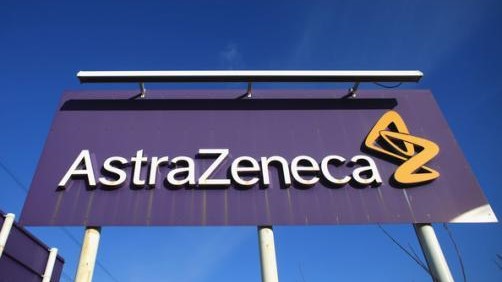AZ joins COVID-19 vaccine race with Oxford Uni partnership

AstraZeneca has joined with Oxford University to develop and distribute the institution’s potential coronavirus vaccine, ahead of an early trial readout as soon as June or July.
AZ signed the deal involving the vaccine known as ChAdOx1 nCoV-19 developed by the Jenner Institute and the Oxford Vaccine Group, which aims to prevent COVID-19 infection caused by the SARS-CoV-2 virus.
As AZ signed the deal CEO Pascal Soriot told the BBC it could be as early as June when it becomes apparent whether the vaccine is effective after first trial of the vaccine began in the UK last week.
Soriot told BBC Radio: “By June, July we will already have a very good idea of the direction of travel in terms of its potential efficacy.
“We’ll continue working with the Oxford Vaccine Unit to bring it to patients and to regulatory authorities first of all as soon as possible.”
A phase 1 trial testing safety and efficacy of the potential vaccine began in healthy volunteers aged 18 to 55 across five trial centres in Southern England last week.
Data from the trial could be available next month and advancement to late-stage trials should take place by the middle of this year if the early stage data is favourable.
ChAdOx1 nCoV-19 uses a viral vector based on a weakened version of the adenovirus that causes the common cold, containing the genetic material of SARS-CoV-2 spike protein.
After vaccination, the surface spike protein is produced, and it’s hoped this will prime the immune system to attack COVID-19 if it later infects the body.
The recombinant adenovirus vector (ChAdOx1) was chosen to generate a strong immune response from a single dose and it is not replicating, so cannot cause an ongoing infection in the vaccinated individual.
Vaccines made from the ChAdOx1 virus have been given to more than 320 people to date and have been shown to be safe and well tolerated, although they can cause temporary side effects such as a temperature, flu-like symptoms, headache or sore arm.
ILC seeks funding for two potential COVID-19 drugs
In a separate development the UK biotech ILC Therapeutics said it has discovered two novel treatments that could be used in COVID-19 patients before they are put on ventilators.
The Glasgow-based company is seeking funding to accelerate safety studies and clinical trials.
ILC has patented a new subtype of interferon-alpha, called Interferon Alpha 14, which can be injected or inhaled.
This natural human molecule could prevent Acute Respiratory Distress Syndrome, which could reduce the number of patients needing a ventilator.
It may also prevent the immune overreaction that can cause fatal damage to the lungs known as a cytokine storm.
The company is also working with Professor Shoumo Bhattacharya at the University of Oxford to develop therapeutic Evasins, which are molecules derived from ticks that can extinguish a cytokine storm in the body once it has already advanced.











